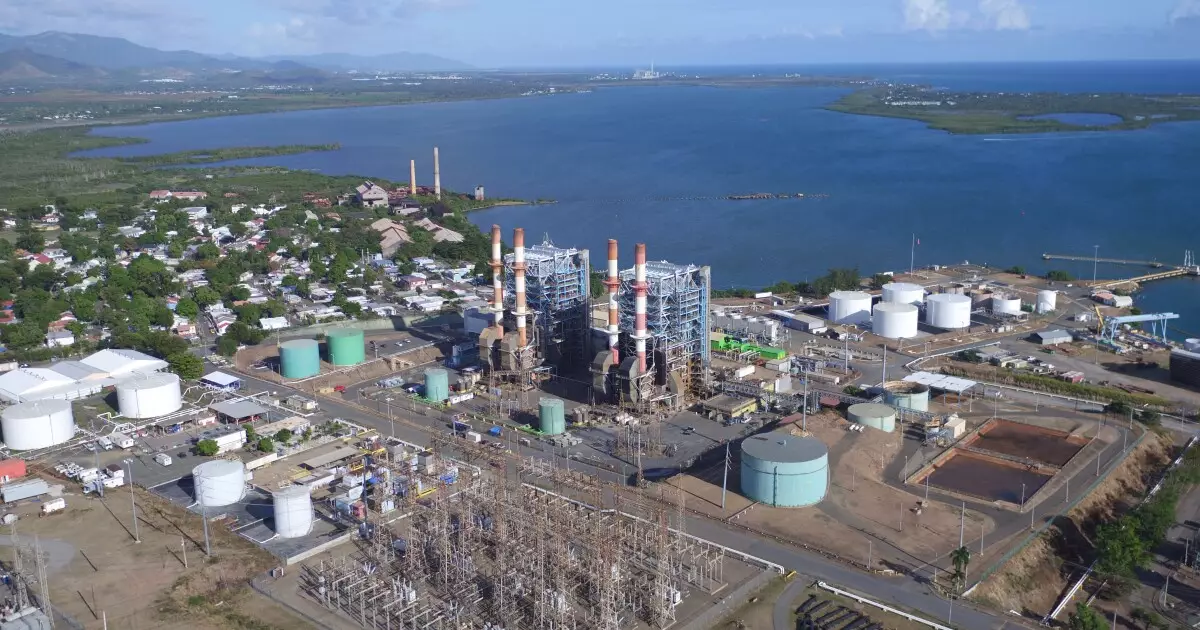Puerto Rico’s economic predicament has been overshadowed by a labyrinth of legal battles, particularly highlighted by the conflict between the Puerto Rico Oversight Board (FOMB) and the bondholders of the Puerto Rico Electric Power Authority (PREPA). At the center of this standoff is a staggering claim of $3.7 billion in administrative expenses that the bondholders are seeking from PREPA as it navigates its complex Chapter 11 bankruptcy proceedings. This controversy illuminates the fraught relationship between a government saddled with financial mismanagement and stakeholders deeply invested in its recovery—both aspects influenced, if not exacerbated, by a deteriorating economic landscape that Puerto Rico has yet to fully escape.
The FOMB stands as a gatekeeper to viable financial recovery for Puerto Rico, fueled by its mandate under the Puerto Rico Oversight, Management, and Economic Stability Act (PROMESA). Their latest statement firmly argued that the bondholders’ claims should take a backseat to other pressing obligations owed by Puerto Rico, including the demand for equitable treatment of public sector employees and their pensions. The FOMB’s rhetoric implies a prioritization of the public interest over financial gains of creditors, reflecting a paternalistic approach to governance that is not uncommon in economically distressed regions. Yet, one must question whether such a framework recognizes the stark realities of investor sentiment and economic revitalization.
The Legal Tug-of-War
Compounding the tension is the intricate legalese that often shields the conversation from laypersons. The bondholders, feeling slighted by the FOMB’s assertion of their claims being subordinate, cite a “constitutional avoidance” strategy. They argue that the board’s position misinterprets the statute. According to the bondholders, the refusal to recognize their claim as valid undermines the protections that bankruptcy law affords. They contend that the First Circuit Court’s ruling—which classified PREPA’s net revenues as bondholders’ collateral—provides a solid legal foundation for their demands.
This tug-of-war over legal interpretations is symptomatic of a broader injustice; a fail-first approach to governance in Puerto Rico must be reevaluated, where creditor rights are precariously balanced against the state’s obligations. It raises the irony that while the board is tasked with stewarding financial recovery, it seems to misunderstand the vital function of investor confidence in reviving an economy. Ignoring valid claims underpins the narrative of administrative ineptitude that Puerto Rico has struggled against for years.
A Deteriorating Financial Landscape
Neither party seems willing to concede despite evident signs of cash shortfall impacting PREPA since the inception of bankruptcy. The bondholders assert that PREPA’s operational expenditures—including maintenance costs—should not exempt them from accountability over collateral use. The frustrations boiled down to a straightforward yet profound necessity: investors seek returns and stability while the government seeks effective ways to balance its books without shunning its fiduciary duties.
The board and bondholders are left treading a thin line; the superficial aspects of governance must not distract from the imperative of root-and-branch reforms. Several pressing questions must enter the discourse: How does Puerto Rico rebalance its financial obligations with humane governance? How can investors regain confidence when the state struggles to provide transparency and accountability?
Seeking a Path Forward
The move to negotiate a more amicable agreement rather than prolong the conflict showcases a semblance of maturity on both sides. It is a positive indication that, despite the potentially overwhelming divide, Puerto Rico’s stakeholders foresee the necessity of collaboration to escape the cycle of delay and unrest. This symbiotic relationship must pivot around shared interests, where the FOMB and bondholders must be willing to engage in dialogues that transcend legalistic ramifications and instead focus on the pragmatic realities of Puerto Rico’s economy.
Navigating Puerto Rico’s bankruptcy requires more than legal wrangling over staggering sums. It is essential that both the FOMB and bondholders recommit to the shared goal of revitalizing Puerto Rico, lest they dissolve into protracted conflict that may lead to further fractures in already tenuous investor relations. If Puerto Rico emerges from bankruptcy intact, its journey continues beyond recovery—into a future where both economic opportunity and equitable treatment can thrive together.

